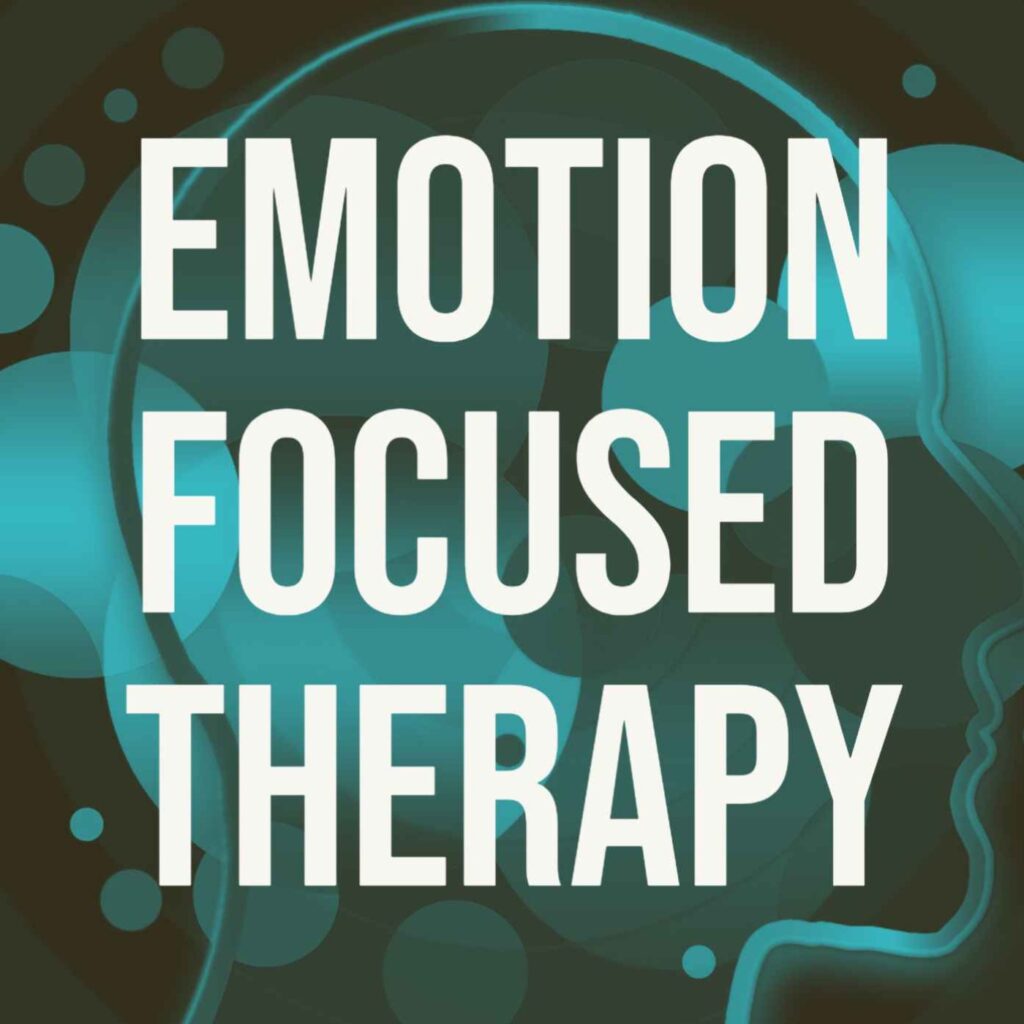Emotion-Focused Therapy is a new approach to mental health that focuses on the client’s emotions and how they can help them improve. In this blog post, we will go over what Emotion-Focused Therapy is and why it has been so successful with clients, as well as emotional triggers that you should be aware of when going into therapy.
Contents
- 1 What Is Emotion-Focused Therapy?
- 1.1 Types
- 1.2 Factors Affecting Emotion-Focused Therapy
- 1.3 Issues Handled With Emotion-Focused Therapy
- 1.4 How Does It Work?
- 1.5 What Happens In Emotion-Focused Therapy Sessions?
- 1.6 How Effective Is Emotion-Focused Therapy?
- 1.7 Benefits Of Emotion-Focused Family Therapy
- 1.8 Techniques Of Emotion-Focused Therapy
- 1.9 Emotion-Focused Therapy Exercises
- 1.10 Disadvantages Of Emotion-Focused Therapy
- 2 Conclusion
What Is Emotion-Focused Therapy?
Emotion-focused therapy is a form of psychotherapy that helps people understand and manage their emotions. It was developed in the 1980s by Dr. Leslie Greenberg, who drew on his own clinical experiences and research on emotion theory to create a new approach to therapy.
The therapy focuses on the emotional aspects of problem-solving and change. Moreover, It helps people identify and express their feelings, understand how their emotions affect their thoughts and behavior, and deal with difficult emotions constructively.
The goal of emotion-focused therapy is to help people develop healthy emotional coping skills that they can use throughout their lives. The therapy can be helpful for a wide range of mental health issues, including depression, anxiety, anger management problems, relationship issues, and life transitions.
Types
There are several different types of emotion-focused therapy, such as:
Emotion-Focused Therapy for Individuals (EFTI)
EFTI is a type of psychotherapy. It can help people with high-risk behavior, such as suicide attempts, drug abuse, cutting, workaholism, and more. Clients typically feel alienated by the traditional forms of therapy that focus on fixing the rational mind rather than listening to the voice of their heart. For 30 years, EFTI has proven its efficacy in clinical trials and research studies.
EFTI is based on the assumption that high-risk behaviors are often (but not always) compulsive acts that can be understood as difficult or impossible ways to express emotions when other outlets for emotional expression are closed or blocked. The loudest or most reactive emotions are usually not the ones that have been caused by life trauma, but rather those that have been stuffed away for a long time. In fact, some feelings seem to be so intolerable that they have been evicted from conscious awareness and reside only in the deep, dark basement of our minds. People who engage in high-risk behaviors are often unconsciously trying to bring these feelings into the light of day.
Emotion-Focused Couples Therapy (EFCT)
EFCT is a type of couples therapy that focuses on the emotional aspects of relationships. It helps couples understand and manage their emotions more effectively, which can improve communication and overall relationship satisfaction.
EFCT is based on the idea that negative emotions in relationships can be destructive and lead to conflict. It aims to help couples identify and address these emotions, which can help them resolve conflicts and improve their relationship.
EFCT has been shown to be effective in improving relationships for both short- and long-term periods. It can help couples who are struggling with communication, conflict, or other emotional issues.
Emotion-Focused Family Therapy (EFFT)
Emotion-focused family therapy is a type of therapy that helps families work through their emotions. It is based on the idea that emotions play a key role in how families function. Moreover, the goal of EFFT is to help families understand and manage their emotions better.
EFFT is typically used to treat family problems such as communication difficulties, parenting problems, and relationship problems. In addition to helping families cope with their everyday challenges, EFFT may also help families who are dealing with a crisis such as the death of a loved one or the loss of a marriage.
The five principles of EFFT are:
- Emotions play a key role in how families function.
- Families need to understand and manage their emotions better.
- EFFT is based on the idea that change happens within relationships.
- EFFT focuses on the here-and-now, not the past.
Factors Affecting Emotion-Focused Therapy
The success of emotion-focused therapy is affected by a number of factors, such as:
- The relationship between the therapist and the person being treated. The relationship should be supportive, respectful, and positive.
- The severity of the person’s emotional problems. The more severe a person’s emotional problems are, the harder it may be for them to make changes.
- The person’s willingness to participate in the therapy and make changes. The person must be willing to work on their emotional problems and commit to the therapy.
- The therapist’s experience and training. The therapist should have experience in treating the type of emotional problems the person is experiencing.
Issues Handled With Emotion-Focused Therapy
Emotion-focused therapy is effective for a wide range of issues, such as:
- Relationship problems – EFCT can be helpful for couples who are having trouble in their relationship or want to improve their communication skills. It’s also used by people whose family members have mental health issues like depression or anxiety disorders.
- Anger management problems – EFTI may help people with anger management issues learn how to identify and deal with difficult feelings constructively. Moreover, this type of therapy is often combined with cognitive-behavioral therapy (CBT), which teaches practical problem solving that can strengthen emotional coping skills.
- Depression – EFTI has been shown to be helpful for people with depression. The therapy can help people understand and manage their emotions, which can improve their mood and outlook on life.
- Anxiety disorders – EFCT may help people with anxiety disorders learn how to identify and deal with anxious thoughts and feelings. This type of therapy can help reduce the severity of symptoms and improve quality of life.
How Does It Work?
The goal of emotion-focused therapy is to help people develop healthy emotional coping skills that they can use throughout their lives. The therapy works by helping people in many ways, such as:
- Understand their emotions better – The therapist helps the person understand what they’re and why it’s affecting them. This can help them take control of their emotions and use them more constructively.
- Express their emotions – The therapist helps the person express their feelings in a safe and healthy way. This can help reduce tension and conflict and improve communication within relationships.
- Deal with difficult emotions – The therapist helps the person deal with difficult emotions in a constructive way. This can help the person manage these emotions better in the future.
What Happens In Emotion-Focused Therapy Sessions?
Emotion-focused family therapy sessions involve many things, such as:
- Discussing how emotions are affecting the family. The therapist will ask questions about how emotions are impacting the family’s functioning. This can help identify any areas that need attention.
- Identifying what caused the problem. The therapist will help the family members identify what triggered their difficult emotions or prevented them from dealing with their feelings in a constructive way.
- Identifying the emotions that are causing problems. The therapist will help each family member identify how they feel about certain situations and what’s causing those feelings. This can involve sharing thoughts, memories, and images related to emotional triggers.
- Talking about ways to deal with difficult emotions more effectively. The therapist may suggest strategies for positive coping or problem-solving skills for dealing with difficult situations constructively. If necessary, the person can try out new behaviors during role-playing exercises or homework assignments between sessions.
Who Can Use Emotion-Focused Therapy?
People of all ages can use emotion-focused therapy, including children. It may be particularly helpful for people who are struggling with depression or anxiety disorders. The therapy is also very helpful with couples and families.
How Effective Is Emotion-Focused Therapy?
There are examples of the effectiveness of Emotion-Focused Therapy, such as:
- The evidence for the effectiveness of emotion-focused therapy is mixed, but some studies have shown that it can be helpful for people who are struggling with a range of emotional problems. However, more research is needed to determine the long-term effects of this type of therapy.
- EFCT may help people with anxiety disorders learn how to identify and deal with anxious thoughts and feelings. This type of therapy can help reduce the severity of symptoms and improve quality of life.
- The goal of emotion-focused therapy is to help people develop healthy emotional coping skills that they can use throughout their lives. The therapy works by helping people.
- It’s not for sure that if the therapy is safe and effective for people under age 18. If you’re thinking about using EFFT on your child, make sure to let their doctor know first. The therapist should also have experience working with young people before treating them in this type of setting.
Benefits Of Emotion-Focused Family Therapy
There are many benefits of EFCT, such as:
- Improved understanding of emotions. The person will better understand what triggered certain feelings and how they affect behavior at home or work. This might help improve relationships between family members as well as at school or work.
- Reduced stress, anxiety, and depression. The person might have fewer symptoms of these conditions after completing EFCT sessions. This can improve quality of life and relationships at home and on the job.
- Improved communication skills. People who participate in this type of therapy may learn how to communicate more effectively with others by expressing their thoughts and feelings in a healthy way instead of suppressing them or avoiding difficult situations completely. They could also develop improved problem-solving strategies that help them resolve conflicts constructively when they arise.
- Increased self-confidence. Some people find that participating in EFCT helps increase their confidence levels because they feel like they’re taking charge of some aspects of their lives rather than feeling helpless about certain problems.
Techniques Of Emotion-Focused Therapy
There are a few techniques that are very helpful in emotion-focused therapy, such as:
- Reflection – The therapist will reflect back on the person’s thoughts and feelings to them in order to help them understand what they’re experiencing. Moreover, this can also help the person to develop more insight into their own emotions.
- Expression – The therapist will encourage the person to express their thoughts and feelings openly, even if they feel uncomfortable doing so. This can help reduce tension within the family unit and promote better communication.
- Problem-solving – The therapist will work with the family to identify and solve any problems that might be causing conflict or stress. This can help improve relationships between family members.
- Empathy – The therapist will express understanding and compassion for the person being suffering, even if they do not agree with their thoughts or feelings. This can help the person feel heard and supported.
- Support – The therapist will provide support to the person throughout the therapy process. This can help them stay motivated to continue working on resolving their emotional issues.
Emotion-Focused Therapy Exercises
There are a few exercises that the therapist might ask the person to do during sessions, such as:
- Journaling – The therapist may ask the person to keep a journal of their thoughts and feelings, both good and bad. This can help them track progress over time and see how therapy is helping them address their emotional issues.
- Expressive writing – The therapist may ask the person to write about a particular issue or event that’s causing them stress or anxiety. Moreover, this can help them express their thoughts and feelings in a safe and healthy way.
- Role-playing – The therapist may ask the family to role-play different situations that might be causing conflict or tension within the home. This can help them learn better problem-solving strategies for dealing with these situations.
- Family meetings – The therapist may ask the family to meet regularly outside of therapy sessions to discuss how things are going and address any issues that might be causing stress or conflict. However, This can help keep the family on track and make sure everyone is staying accountable.
Disadvantages Of Emotion-Focused Therapy
There are a few potential disadvantages of EFCT, such as:
- Therapist’s bias. The therapist may have their own personal biases that could interfere with the treatment process. For example, the therapist might be more likely to favor one family member over another without realizing it.
- The therapy is time-consuming. This type of therapy can be time-consuming, so people who participate in it should be ready for weekly or biweekly sessions that last for an hour or longer.
- Family members must be willing to participate. In order for this type of therapy to be effective, all family members involved need to be willing to participate and share their thoughts and feelings openly with each other. However, Some family members may not be willing to participate in the sessions or may refuse to talk about certain issues that are important to them.
Conclusion
Emotion-focused therapy is a type of psychotherapy that focuses on the emotional aspects of an individual’s experience. It helps people change unhealthy or harmful patterns by focusing on their feelings and emotions. However, this type of therapy may not be appropriate for everyone because it can sometimes make things worse if you have a history of trauma.
If you are looking for affordable Online Counseling MantraCare can help: Book a trial therapy session










